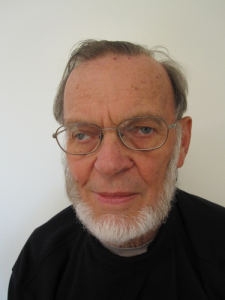
Greetings from Michael Bamberger. I have been involved in development programs and development evaluation since the 1960s, and much of my work has focused on gender and social exclusion.
We live in an increasingly complex world and development programs, and their evaluation are also becoming more complex. The understanding of complexity is particularly important for the evaluation of programs promoting gender equality and women’s empowerment (GEWE).
Complexity is particularly challenging for assessing the processes of change and outcomes for GEWE interventions.
First, gender relations in any society are regulated by a broad range of social, cultural, religious, economic, legal and political, social control mechanisms designed to ensure that both women and men, conform to acceptable norms of behavior. Many of these norms and sanctions are very subtle and difficult to observe and measure.
Second, many GEWE interventions produce subtle changes in attitudes, behavior and self-esteem which are difficult to measure.
Third, many gender changes evolve over long periods of time, and some effects of programs such as girls education may only be observed in the next generation.
The implementation and outcomes of development programs are affected by at least four interacting dimensions of complexity described in Figure 1 (Bamberger, Vaessen and Raimondo Chapter 1)
- The nature of the program or other intervention (e.g. size and scope, level of technical and social complexity, scope and clarity of the objectives)
- Organizational dynamics: relations among multiple stakeholders and the level of consensus or conflict.
- The wider context: the political, economic, legal, socio-cultural and environmental contexts in which programs operate.
- The nature of change and causality: while “simple” programs may have direct (linear) linkages between inputs and outputs, for complex programs there are multiple, non-linear and recursive causal chains.
Help is on the way! A number of complexity-responsive evaluation approaches are starting to be developed, all of which are directly applicable to gender. The work of Michael Patton, and Sue Funnell and Patricia Rogers; Bamberger, Vaessen and Raimondo offer practical approaches. The work on evaluation strategies for the gender dimensions of the SDGs are also generating promising ideas.
Cool Tricks:
- Assume all gender interventions are complex and that a complexity-responsive approach will be required. Always think how the four dimensions of complexity might affect the program being evaluated.
- Assume that most gender interventions will face mechanisms of social control that constrain changes in the status of women. No-one will mention most of these factors so the evaluator must be alert and must constantly consult the extensive feminist literature on issues regarding power and social control
- Be aware of the additional complexity challenges facing gender evaluations and think how they can be addressed.
Rad Resource: Brisolara, S; Seigart, D and SenGupta, S (editors) (2014) Feminist Evaluation and Research
The American Evaluation Association is celebrating Feminist Issues in Evaluation (FIE) TIG Week with our colleagues in the FIE Topical Interest Group. The contributions all this week to aea365 come from our FIE TIG members. Do you have questions, concerns, kudos, or content to extend this aea365 contribution? Please add them in the comments section for this post on the aea365 webpage so that we may enrich our community of practice. Would you like to submit an aea365 Tip? Please send a note of interest to aea365@eval.org. aea365 is sponsored by the American Evaluation Association and provides a Tip-a-Day by and for evaluators.


An interesting and insightful movies on net flick enticed Gender. the show wowed me. given my diversified associates, friends and people I come into contact with on a daily basis was confusing for so many reasons, and I never want to offend anyone. however, the Gender show on Netflick gave me clarification and perspective as to how people voices could be identify and counted.
Please let me know your opinions!!!
Monica